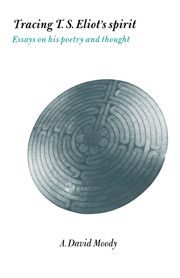5 - Pervigilium Veneris and the modern mind
Published online by Cambridge University Press: 05 November 2011
Summary
In the babble of fragments at the end of The Waste Land is the half-line ‘Quando fiam uti chelidon’, readily translated – perhaps too readily – as ‘when shall I be, or become, like the swallow’. Eliot's note refers the reader to the Pervigilium Veneris, and also to ‘Philomela in Parts 11 and 111’. We are thus directed back to
The change of Philomel, by the barbarous king
So rudely forced; yet there the nightingale
Filled all the desert with inviolable voice
And still she cries, and still the world pursues
(11.99–102)The notes to those lines further refer us to the full and powerful version of the myth in Book VI of Ovid's Metamorphoses, and point ahead to Eliot's own summary version in part III:
Twit twit twit
Jug jug jug jug jug jug
So rudely forc'd
Tereu
(111.203–6)There Procne, Philomela and Tereus tell their story of the rape, the tongue cut out, and the unnatural revenge, in the songs of the birds they were changed to, swallow, nightingale and hoopoe or lapwing.
The effect of all this is to relocate the half-line from the close of the Pervigilium Veneris in a context very different from its own, and to mark a way of interpreting that poem which reveals a profound difference between the mind which produced it and the mentality of some influential modern readers.
- Type
- Chapter
- Information
- Tracing T. S. Eliot's SpiritEssays on his Poetry and Thought, pp. 85 - 112Publisher: Cambridge University PressPrint publication year: 1996



